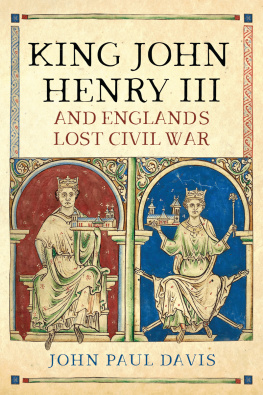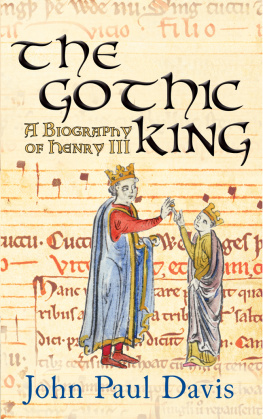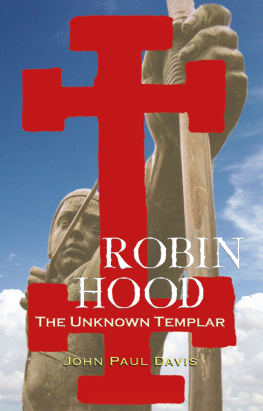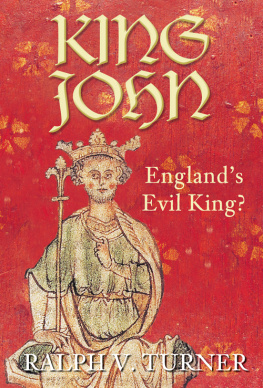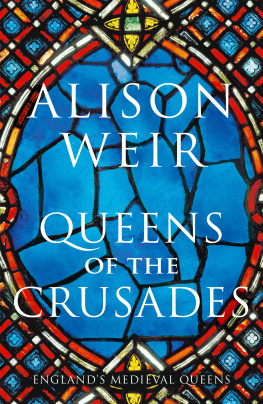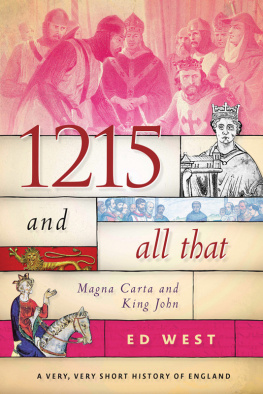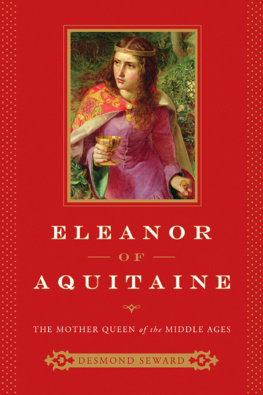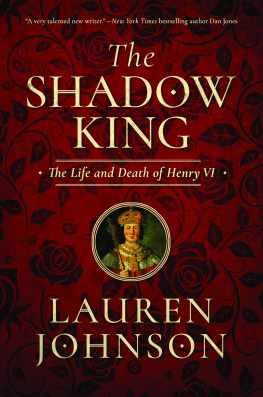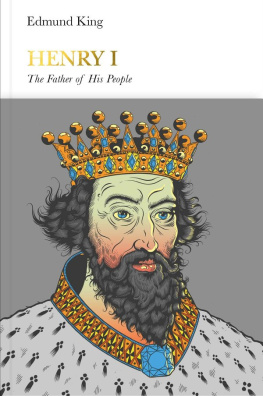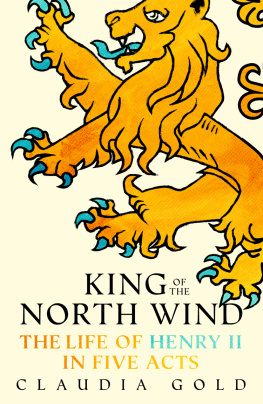Pagebreaks of the print version

KING JOHN, HENRY III
AND ENGLANDS LOST CIVIL WAR
If everyone else abandoned the king, do you know what I would do? I would carry him on my shoulders, step by step, from island to island, from country to country, and I would not fail him, not even if it meant begging my bread.
William Marshal, 1 st Earl of Pembroke, 29 October, 1216
Voracious envy, that overthrows morality,
That sets fire to faults, tore away their solace.
Without an equal of a leader, A spiteful people of an averted mindset got ahead of the glory of his brightness.
England, bewail thy Marshal,
Bewail him with tears!
The reason is, why?
Because on thy behalf England bewailed to love!
The virtue of the army,
The protection of the fatherland, Through the fraud of its own people It tumbled down.
God have mercy on the one who is dying!
The Annals of Waverley on the death of Richard Marshal,
3 rd Earl of Pembroke, April 1234
KING JOHN, HENRY III
AND ENGLANDS LOST CIVIL WAR
JOHN PAUL DAVIS
First published in Great Britain in 2021 by
PEN AND SWORD HISTORY
An imprint of
Pen & Sword Books Ltd
Yorkshire Philadelphia
Copyright John Paul Davis, 2021
ISBN 978 1 52675 007 5
eISBN 978 1 52675 008 2
Mobi ISBN 978 1 52675 009 9
The right of John Paul Davis to be identified as Author of this work has been asserted by him in accordance with the Copyright,
Designs and Patents Act 1988.
A CIP catalogue record for this book is available from the British Library.
All rights reserved. No part of this book may be reproduced or transmitted in any form or by any means, electronic or mechanical including photocopying, recording or by any information storage and retrieval system, without permission from the Publisher in writing.
Pen & Sword Books Limited incorporates the imprints of Atlas, Archaeology, Aviation, Discovery, Family History, Fiction, History, Maritime, Military, Military Classics, Politics, Select, Transport, True Crime, Air World, Frontline Publishing, Leo Cooper, Remember When, Seaforth Publishing, The Praetorian Press, Wharncliffe Local History, Wharncliffe Transport, Wharncliffe True Crime and White Owl.
For a complete list of Pen & Sword titles please contact
PEN & SWORD BOOKS LIMITED
47 Church Street, Barnsley, South Yorkshire, S70 2AS, England
E-mail:
Website: www.pen-and-sword.co.uk
Or
PEN AND SWORD BOOKS
1950 Lawrence Rd, Havertown, PA 19083, USA
E-mail:
Website: www.penandswordbooks.com
Introduction
The village of Upavon in Wiltshire isnt particularly well known outside its local area. Mentioned in passing in the Domesday Book, this charming rural parish on the northern edge of the Salisbury Plain differs little from many of Englands small rural settlements.
The original spelling Oppavrene offers a clue to its whereabouts. The upper section of the River Avon has meandered through its green fields since the earliest of times, the constant erosion causing subtle changes to the local surroundings. By the thirteenth century, what had started life as a small Saxon hamlet sited close to an Iron Age hill fort was prospering. A market square was created to the west of the imposing Norman church that had replaced an earlier Saxon structure; to the south was built a manor house, from which the lord enjoyed views across the surrounding countryside. Discounting those who visited the market, it is doubtful the population reached 1,000. Eight centuries later, little has changed.
In 1229, the manor of Upavon was the property of one Peter de Maulay. Born in a village that carried his family name in the French region of Poitou, de Maulay had found both fame and infamy in England as an evil counsellor of King John. During the minority of Johns eldest son, Henry III, he remained a principal advisor, as well as a loyal ally of the controversial Bishop of Winchester, Peter des Roches briefly Johns justiciar before Magna Carta and also Henrys tutor. Loathed in certain quarters for his poor influence on the young king, as the 1220s came to an end, the king stripped de Maulay of the manor. On refusing to vacate it, a stern warning from the justiciar Hubert de Burgh that continued disobedience would see him relocated to a place where he would be able to see neither his hands nor his feet ensured his compliance. In so doing, he joined the already ousted des Roches in political ignominy.
As a consequence of de Maulays loss, the English-born justiciar oversaw the transfer of the manor by a royal grant to one Gilbert Basset, son of the prominent English baron Alan Basset, who had fought valiantly for the royalists in the First Barons War (1215-17). Over the next three years, Gilbert distinguished himself on the baronial scene, his successful negotiation of a truce on the kings behalf with Llywelyn ap Iorwerth, Prince of Gwynedd, a particular highlight. Already of ancient baronial stock, his marriage to the niece of the late William Marshal, 1 st Earl of Pembroke all but cemented his place in the upper echelons of the so-called popular party. By building a life on such solid foundations, fortune and glory, it seemed, was already in the palm of his hand.
But this was the thirteenth century. And this was England. A time and a place when even in peacetime life in a typical village could be turned upside down in the wink of an eye. Such an occurrence awaited on 6 February 1233, when the good fortune that had blessed Gilbert four years earlier was dramatically reversed. After de Maulay came to the kings attention during the French campaign of 1230, Henrys government reopened the Upavon case and decided to return the manor to him.
On learning of the kings change of heart, the new earl of Pembroke, Richard Marshal, presented Gilberts grievances before Henry personally. Furious that the king had denounced his royal grant, Marshal argued that by denying the legality of his own ruling, Henry was in danger of bringing about a constitutional crisis. In a further attempt to seize the initiative, he carefully framed his argument in a way that took it far beyond that of an ordinary domestic dispute. By pointing the finger of blame squarely at the reinstated des Roches, he demanded an end to the lawlessness of the kings close foreign advisors who had perverted the kings heart.
As was so often the case in medieval England, not only was the accused party present to hear the charges, its leader also dared to take it upon himself to answer on the kings behalf. Des Rochess lengthy response on the matter still speaks volumes, not least his claim that: the king is surely allowed to summon as many foreigners as he chooses for the protection of his kingdom to reduce his haughty and rebellious subjects to their proper obedience. If the bishops perceived arrogance alone was not enough to incite the wrath of the kings fiercest critics, less than six months later matters reached a tipping point. When word reached Marshal and Basset that a council convened at Westminster was merely an orchestrated ruse to snare them into captivity, the pair stayed away. Accused of treason for their failure to attend, both they and their key followers were outlawed. Just as had been the case in 1215, hatred of the royal advisors and question marks over the kings ability to abide by his charters had brought England to the brink of war.

